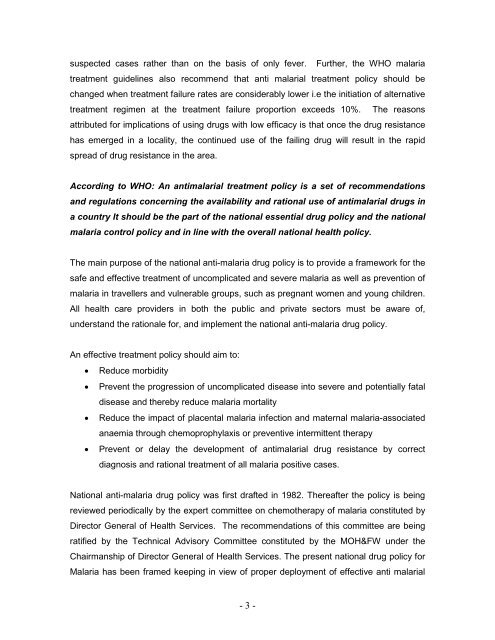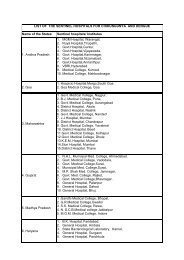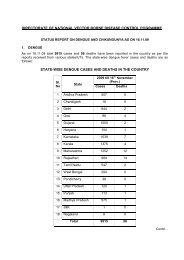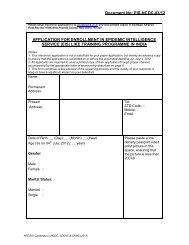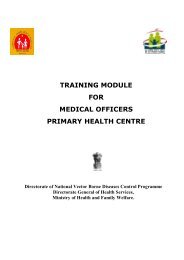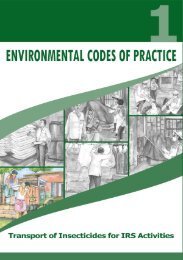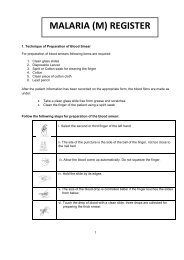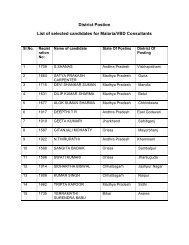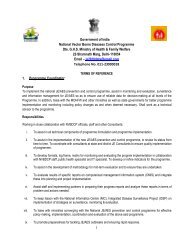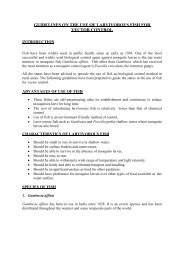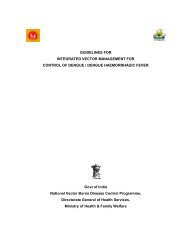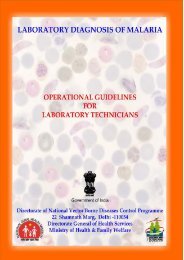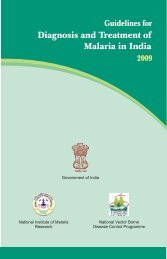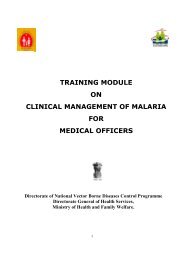MALARIA DRUG POLICY (2007) - NVBDCP
MALARIA DRUG POLICY (2007) - NVBDCP
MALARIA DRUG POLICY (2007) - NVBDCP
Create successful ePaper yourself
Turn your PDF publications into a flip-book with our unique Google optimized e-Paper software.
suspected cases rather than on the basis of only fever. Further, the WHO malariatreatment guidelines also recommend that anti malarial treatment policy should bechanged when treatment failure rates are considerably lower i.e the initiation of alternativetreatment regimen at the treatment failure proportion exceeds 10%. The reasonsattributed for implications of using drugs with low efficacy is that once the drug resistancehas emerged in a locality, the continued use of the failing drug will result in the rapidspread of drug resistance in the area.According to WHO: An antimalarial treatment policy is a set of recommendationsand regulations concerning the availability and rational use of antimalarial drugs ina country It should be the part of the national essential drug policy and the nationalmalaria control policy and in line with the overall national health policy.The main purpose of the national anti-malaria drug policy is to provide a framework for thesafe and effective treatment of uncomplicated and severe malaria as well as prevention ofmalaria in travellers and vulnerable groups, such as pregnant women and young children.All health care providers in both the public and private sectors must be aware of,understand the rationale for, and implement the national anti-malaria drug policy.An effective treatment policy should aim to: Reduce morbidity Prevent the progression of uncomplicated disease into severe and potentially fataldisease and thereby reduce malaria mortality Reduce the impact of placental malaria infection and maternal malaria-associatedanaemia through chemoprophylaxis or preventive intermittent therapy Prevent or delay the development of antimalarial drug resistance by correctdiagnosis and rational treatment of all malaria positive cases.National anti-malaria drug policy was first drafted in 1982. Thereafter the policy is beingreviewed periodically by the expert committee on chemotherapy of malaria constituted byDirector General of Health Services. The recommendations of this committee are beingratified by the Technical Advisory Committee constituted by the MOH&FW under theChairmanship of Director General of Health Services. The present national drug policy forMalaria has been framed keeping in view of proper deployment of effective anti malarial- 3 -


